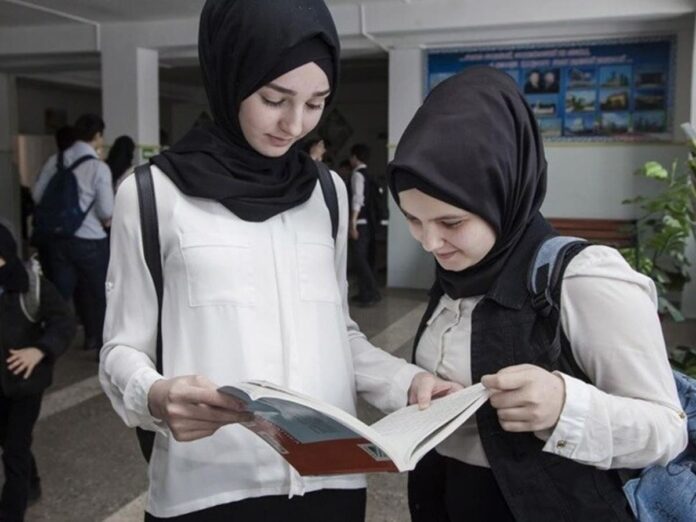The Kazakhstani government has announced a ban on face coverings in public spaces, citing national security and technological limitations as the primary reasons behind the move. The new regulation has sparked global debate, especially considering Kazakhstan is a Muslim-majority country, and the rule could affect religious and cultural practices such as wearing the niqab or burqa.
Article Contents
According to government officials, the ban is not religiously motivated, but rather a technological and security-driven decision aimed at improving the functionality of facial recognition systems, which are now being used widely across the country for identification, surveillance, and public safety.
What Does the New Rule Say?
Under the newly issued directive:
-
Face coverings will not be permitted in public areas.
-
Exceptions will be made only for medical reasons, extreme weather conditions, or during sporting activities.
-
The regulation applies to citizens and non-citizens alike, and violators may face fines or legal action if they do not comply.
The rule specifically targets the practice of fully covering the face, which includes niqabs, burqas, ski masks, and face-obscuring scarves, depending on the context.
Why Has Kazakhstan Imposed the Ban?
According to Kazakhstan’s Ministry of Internal Affairs, the primary motivation behind the regulation is public safety and technological compatibility. Officials say:
“Facial recognition systems are critical for ensuring national security and efficient law enforcement. Full-face coverings interfere with these systems, especially in airports, train stations, government buildings, and high-security zones.”
Kazakhstan has recently expanded its investment in AI-powered surveillance systems, especially in major cities like Astana and Almaty, as part of its “Smart Nation” initiative. The inability to detect or identify individuals due to facial obstructions, the government says, undermines these efforts.
Public Response and Global Reactions
The move has triggered mixed reactions both within Kazakhstan and across the international community.
Supporters say:
-
It enhances public safety and prevents misuse of anonymity.
-
Facial recognition aids in crime prevention, counter-terrorism, and lost-person tracking.
-
The ban is not religiously targeted, since exemptions exist for practical needs like illness and cold weather.
Critics argue:
-
It infringes on personal freedoms and religious expression.
-
The rule disproportionately affects Muslim women who wear face veils as part of their faith.
-
It could set a dangerous precedent for state control over religious practices.
Human rights groups have urged Kazakhstan to reconsider or revise the policy, warning that such regulations, if poorly implemented, could fuel social unrest or marginalize minority communities.
Kazakhstan Joins a Growing List of Countries Regulating Face Veils
While Kazakhstan’s move may surprise many, it is not the first Muslim-majority country to impose restrictions on face coverings. Several nations, both Islamic and secular, have introduced similar bans in recent years for security, secularism, or cultural integration.
Countries with Similar Bans on Face Coverings:
-
France – First European country to ban full-face veils in public in 2011.
-
Belgium – Complete ban on burqas and niqabs in public spaces.
-
Denmark – Enforced ban in 2018; violators face fines.
-
Sri Lanka – Temporary ban imposed following the 2019 Easter bombings.
-
Tajikistan – Encourages traditional national dress and discourages Arab-style veils.
-
Chad, Cameroon, Congo-Brazzaville – Bans after face-covering attackers used burqas in militant incidents.
Even some Muslim-majority countries like Tunisia, Morocco, and Algeria have imposed restrictions, especially in government offices and educational institutions.
Kazakhstan’s regulation, however, stands out due to its explicit tie to AI-driven surveillance infrastructure.
Technology vs. Tradition: A Growing Global Debate
Kazakhstan’s policy highlights a growing tension globally between modern surveillance technologies and traditional religious attire.
As governments increasingly rely on AI, biometric verification, and facial recognition, full-face coverings pose a challenge. At the same time, religious rights remain a cornerstone of international human rights frameworks.
Kazakhstan is attempting to strike a balance, but many warn that restricting religious practices under the banner of technology could trigger long-term social divisions.
Voices from the Community
Some Muslim women in Kazakhstan have expressed concern over the rule, stating that it makes them feel targeted and alienated. Others support the government’s stance, emphasizing that Islam does not mandate full-face covering and that public safety is paramount.
A Kazakh academic, speaking anonymously, said:
“The niqab is a personal choice for some, but the state must ensure a balance between religious expression and collective safety. Transparent implementation and dialogue are key.”
How Will the Law Be Enforced?
Officials state that enforcement will be non-discriminatory and gradual. Educational campaigns will precede fines or penalties, and local authorities have been instructed to avoid abuse of power.
Citizens who require exceptions (e.g., for health conditions like allergies, post-surgical recovery, or extreme weather exposure) can apply for permits or carry medical documentation.
There are also plans to create designated spaces in government buildings and airports for identity verification in privacy for those who wear veils.
Kazakhstan’s decision to ban face coverings in public spaces is part of a broader shift toward AI-driven public safety infrastructure, but it also ignites a complex debate over individual freedoms, religious expression, and the future of privacy.
While the government insists the move is non-religious and purely technological, the optics of implementing such laws in a Muslim-majority nation require delicate handling, transparency, and ongoing public dialogue.
As more countries embrace surveillance technologies, the intersection of tradition and technology will only grow sharper, and how Kazakhstan handles this policy could set a precedent for others to follow — or avoid.
Stay tuned with KKNLive.com for the latest updates on international law, human rights, religion and tech policy news.




